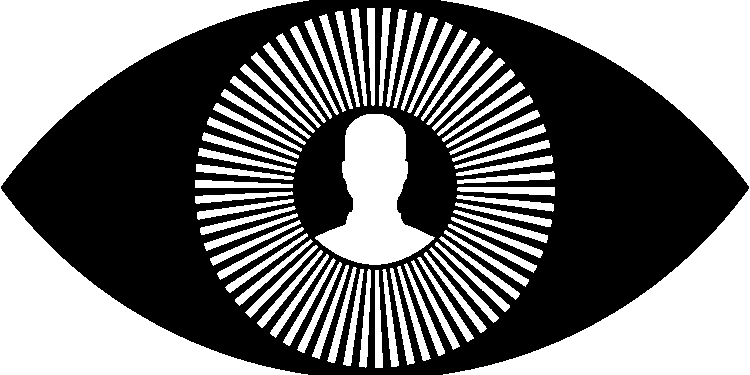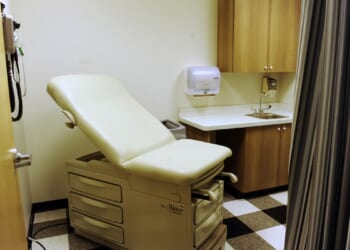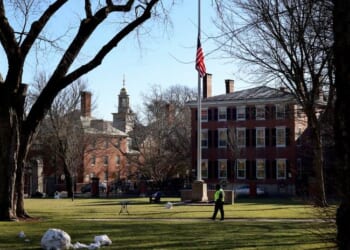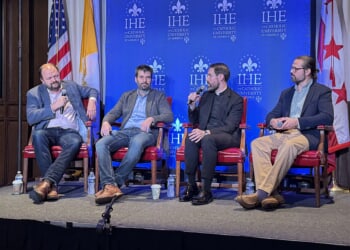Jasleen Chaggar is Legal and Policy Officer at Big Brother Watch
In the wake of recent knife attacks Shadow Home Secretary Chris Philp MP intervened to suggest that live facial recognition (LFR) technology would “give the police the tools they need” to tackle knife crime. The horrifying incident in Cambridgeshire should give us all pause for thought, but that does not mean we should let knife crime become the latest moral panic to upend civil liberties.
It is not clear whether the use of LFR would have made much difference in preventing the Cambridgeshire attack. LFR searches through bales of hay to find needles. Far from strategic, intelligence-led investigative policing, the technology drags the entire population into the net of suspicionless surveillance.
LFR shifts the burden of policing criminals onto law-abiding citizens. It requires us to subject ourselves to baseless identity checks when we are not even suspected of any wrongdoing. Philp wants to see an expansion of this intrusive software on our high streets and in train stations, effectively creating a police line-up as we do something as mundane as our daily commute or weekly grocery shop.
And it’s not just criminals who populate the police’s watchlists to be flagged and stopped for questioning. Victims, witnesses, and associates can also find themselves placed on LFR watchlists without their knowledge. As most LFR deployments are required to include posters alerting passers-by to the technology, it is hard to imagine that any real criminal masterminds would willingly walk into a ‘zone of recognition’. Indeed, according to the Met Police’s recent annual report on their use of this Orwellian technology, the majority of people flagged by facial recognition were not wanted for arrest.
It is a red herring to suggest that the deletion of biometric data after a scan reduces civil liberties concerns. The intrusion took place before the deletion of the data. We would scoff at the idea that the police should take a cheek swab of everyone walking down the high street on the off chance you are someone they are looking for so long as they threw away the sample afterwards. Just because a LFR ‘sample’ is taken from a distance without your physical cooperation, or potentially even without your knowledge, does not make it any less intrusive.
This technology fundamentally changes the nature of our relationship with the police, transforming us from a free society into a population that cannot be trusted, living in what feels like an open air prison. This technology destroys the principle of “the police are the public and the public are the police” and transforms cameras into the police and LFR into watchmen.
It is not just LFR that the Shadow Home Secretary is suggesting we should deploy to tackle knife crime. He demonstrates an alarming contempt for the rule of law by advocating for “suspicionless stop and search” in high crime areas. To be clear, the Shadow Home Secretary is suggesting that the police should be entitled to detain and search people as they go about their daily lives – just to make sure they are not carrying a knife, without any basis for ever suspecting they have one. Whilst this may be permissible under the law, it would be a disaster for civil liberties.
It is a fundamental premise of policing that the public should not be subject to arbitrary interference, for example just by virtue of passing through a “high crime” area. To suggest such exceptional powers should be used in this disproportionate way should be deeply chilling to anyone who values their liberty.
Despite what Chris Philp says, it has been shown time and time again that ‘stop and search’ produces racially biased outcomes. It is glib to say, as the Shadow Home Secretary does, that we shouldn’t shy away from using certain technologies because of ‘racial sensitivities.’ But it is not about whether the criminal is black or white; it is about the implications for hundreds and thousands of innocent people of colour in this country who are wrongfully profiled and continually stopped when they have done nothing wrong.
LFR allows these discriminatory checks to be replicated in an automated way on a population-wide scale. As anti-knife crime campaigner Shaun Thompson, who is bringing a legal challenge against the Met’s use of LFR after he was misidentified last year, puts it, LFR technology is “stop-and-search on steroids.” Indeed, in the Met’s annual figures, a staggering 80 per cent of individuals wrongfully flagged by LFR were black people.
Philp’s enthusiasm for LFR is hardly a revelation. In government, he secretly pried open the entire passport database to rifle through our images for retrospective facial recognition and supported the expansion of LFR in shops, creating a new zone of privatised policing. As Policing Minister, he also lobbied the UK’s data regulator over LFR with such fervour that the regulator considered it an “ongoing risk.” Such an alarming assessment paints a picture of the Shadow Minister’s zealousness as approaching that of a religious acolyte. But even if Philp prays at the alter of LFR, it does not mean we need to.
It is at times of panic and emergency that it is most important to defend fundamental rights, not rush to mass surveillance technology. We must not let last week’s grim attack – however harrowing – become the cover under which we justify Orwellian technology that erodes our freedom.


![Scott Bessent Explains The Big Picture Everyone is Missing During the Shutdown [WATCH]](https://www.right2024.com/wp-content/uploads/2025/11/Scott-Bessent-Explains-The-Big-Picture-Everyone-is-Missing-During-350x250.jpg)











